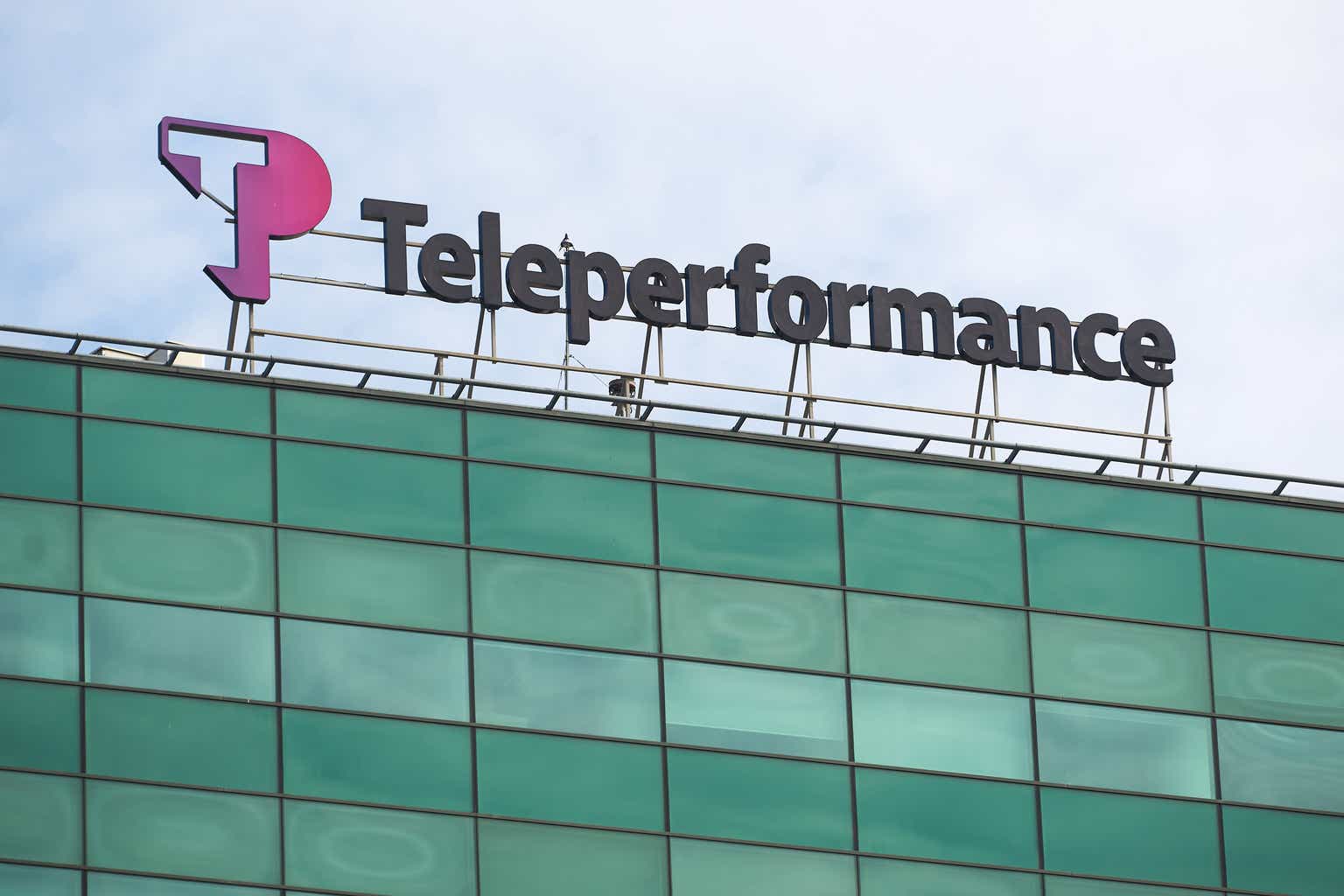This article is an on-site version of our Disrupted Times newsletter. Sign up here to get the newsletter sent straight to your inbox three times a week
Today’s top stories
Global temperatures are likely to exceed 1.5C above pre-industrial levels within the next five years, the World Meteorological Organization warned in its latest annual assessment.
Rating agencies warned of the impact of ageing populations on public finances across the world, as interest rates rise alongside higher pension and healthcare costs. Government credit ratings are likely to be downgraded without sweeping reforms.
Bank of England governor Andrew Bailey admitted the UK was suffering a wage price spiral after official data showed little let up in wage growth in the three months to March, reinforcing concerns over pressures fuelling inflation.
For up-to-the-minute news updates, visit our live blog
Good evening.
If you harboured any thoughts that Brexit might finally be “done”, think again.
Stellantis has become the first carmaker to urge the UK government to renegotiate the terms of the Brexit trade deal, in this case to stop its electric vehicle exports becoming uncompetitive, just as the global industry pivots towards an electric future, encouraged by green tech subsidies in the EU, US and China.
The company, which owns brands such as Fiat, Peugeot and Chrysler, warned it might need to close its Ellesmere Port factory because its electric vans will face tariffs of 10 per cent when exported to mainland Europe from next year because they will not contain enough locally sourced parts to satisfy beefed-up EU “rules of origin”.
Stellantis told a parliamentary committee that the Ukraine war, rising costs of raw materials and supply chain issues meant it could no longer meet the content standards envisaged when it announced its investment in the Cheshire plant in 2021. (Read our explainer for more detail on rules of origin and the impact of tariffs.)
The carmaker however is not alone in its concerns over the new rules. Its call to delay their introduction was echoed by carmakers across the UK and Europe, who worry they will push up the price of electric vehicles and slow public uptake.
The new concerns come as the industry steels itself for a wave of increased competition from China. Competition is intensifying within China too, causing Ford to announce yesterday it would scale back its EV investments in the country.
The lack of a homegrown battery industry is a big part of the problem, meaning UK carmakers will need to rely on imports for a while to come. Hopes of building a domestic supplier were dealt a blow in January when Britishvolt collapsed into administration. As columnist Helen Thomas notes, the UK has neither successfully struck deals with established Asian battery companies to build in Britain, nor nurtured domestic start-ups, a problem echoed last week by the head of luxury-car maker Bentley.
Tata Motors, owner of Jaguar Land Rover, is yet to decide whether to build a battery factory in the UK or Spain in a decision said to be pivotal for the future of the British industry. It has demanded more than £500mn of government aid to swing its decision.
In the meantime, the UK’s competitors have been busy promoting investment in green tech, including electric vehicle production. The US has already laid out a generous scheme of subsidies, stoking a global arms race to woo investors. France yesterday launched a package of measures, including tying subsidies for electric cars to environmental restrictions that would favour European manufacturers.
Mainland Europe is also racing to build battery factories. Northvolt, Europe’s main battery maker, is building a plant in Germany after the federal government promised state aid, while Taiwanese manufacturer ProLogium is building one in France.
The UK car industry however remains particularly vulnerable and is struggling to adapt to an electric future after being painstakingly rebuilt through investment from Japan, Germany and India before being dealt a blow from Brexit. The situation adds to concerns from business that the country lacks an industrial strategy.
Need to know: UK and Europe economy
Some of those inflationary pressures in the UK include utilities “ripping off” customers, according to the country’s competition tsar, who said shareholders in water and energy monopolies should get steady but unspectacular returns. New official data showed more than 3mn Britons were struggling to keep up with bills and payments.
Russia exported more oil in April than in any month since its invasion of Ukraine, with almost 80 per cent of crude shipments flowing to China and India. The EU was urged to crack down on imports of Indian fuels made with Russian oil.
Western nations are steeling themselves for five more years of Recep Tayyip Erdoğan as Turkish leader, a president they view as troublesome and unpredictable, but also an essential Nato partner adjoining the Middle East and the Black Sea. Rating agencies warned that Erdoğan’s ‘unsustainable’ economic policies risked a lira sell-off
A new Big Read examines proposals for a digital euro. Policymakers are eager to step up preparations but are struggling to communicate convincing arguments over why it’s needed.
Need to know: global economy
G7 leaders gather in Japan this weekend amid global fears of a US debt default, deepening division over energy policy and no end in sight for the Ukraine war. For hosts Japan, the top challenge will be to engineer a unified response to China’s military ambitions. British prime minister Rishi Sunak suggested the UK was considering following Washington’s lead by imposing new restrictions on domestic companies making investments into critical industries in China.
Chief economics commentator Martin Wolf delves into the “theatre of the absurd” that is the US debt ceiling debate. Talks are inching forward, but Treasury secretary Janet Yellen warned of a jump in US borrowing costs. Here’s an explainer.
Industrial output in China fell short last month, raising doubts about the country’s economic recovery.

Japan came out of recession as household spending and tourism bounced back, sending stocks to a 33-year high. Exports and manufacturing however remain fragile.
Brazil’s powerful house speaker, the conservative Arthur Lira, vowed to stop Luiz Inácio Lula da Silva taking any “backward steps” on economic reform and prevent the overhaul of business-friendly laws.
Ecuador’s rightwing president Guillermo Lasso, who is facing impeachment charges, has dissolved the opposition-controlled parliament, triggering elections.
Need to know: business
A UK parliamentary committee called for cryptocurrency to be regulated like gambling, rather than as a financial service, which could give the impression the industry is “safer than it is”.
Norway’s $1.4tn oil fund will step up its use of shareholder proposals to send messages on environmental, social and governance issues to US companies after a successful test.
South Korea is getting tough on tech leaks to Chinese companies, which are becoming more aggressive in acquiring expertise in critical technologies, from semiconductors to electric-car batteries and industries including displays and shipbuilding.
Our Behind the Money podcast tackles the burning question: Why don’t companies want to list in the UK anymore?
The World of Work
Do you ever feel invisible at work? Isabel Berwick and guests discuss how to build your profile and “personal brand” in the new Working It podcast.
Would it be unwise to leave a well-paid job to pursue a career in film? FT careers expert Jonathan Black and FT readers proffer some advice.
Some good news
New tech such as drones and solar-powered camera traps are enabling indigenous guardians of the Amazon to fight illegal logging.
Recommended newsletters
Working it — Discover the big ideas shaping today’s workplaces with a weekly newsletter from work & careers editor Isabel Berwick. Sign up here
The Climate Graphic: Explained — Understanding the most important climate data of the week. Sign up here
Thanks for reading Disrupted Times. If this newsletter has been forwarded to you, please sign up here to receive future issues. And please share your feedback with us at [email protected]. Thank you
















